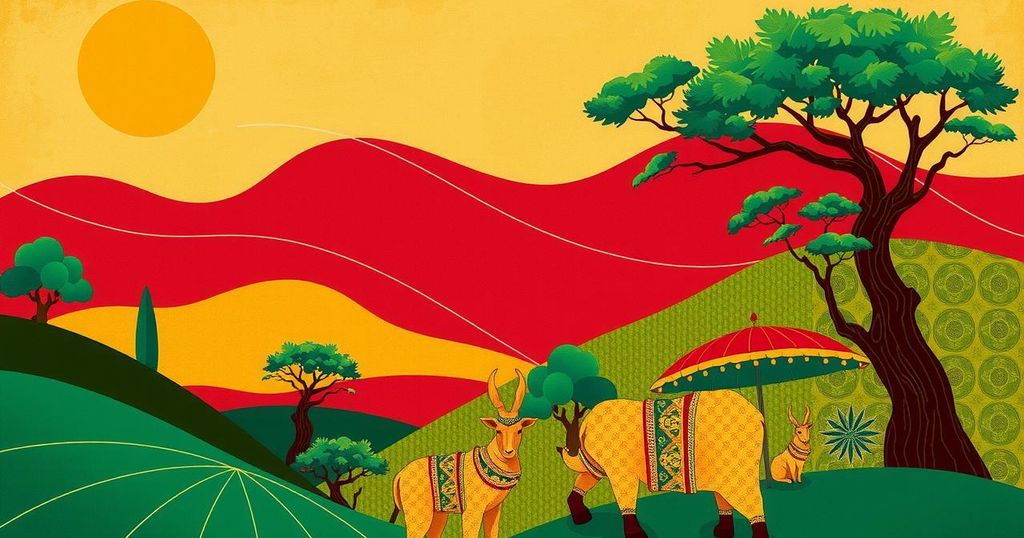The Origins and Significance of Ghana’s Name

This article explores how the name Ghana originated from the ancient Ghana Empire, transitioning from its colonial name Gold Coast following independence in 1957. The choice of the name represents unity, pride, and liberation, while its meaning in Soninke translates to ‘Warrior King.’ The article further discusses the symbolism of the national flag’s colors.
The name Ghana derives from the historical Ghana Empire, reflecting a period of prosperity due to gold trade. Prior to independence in 1957, the country was known as the Gold Coast, a name that highlighted its abundance of gold and its colonial past. The Portuguese first named the region Gold Coast in the 15th century due to its significant gold resources.
Upon gaining independence, Dr. Kwame Nkrumah, the first President of Ghana, selected the name ‘Ghana’ to establish a connection with the ancient Ghana Empire that existed around 830 AD. This name symbolizes unity, pride, and liberation for the citizens of Ghana. Furthermore, the name is rooted in the local Soninke language, where it translates to “Warrior King,” denoting the historical influence of the empire in West Africa.
The colors of the Ghanaian flag—red, yellow, green, along with the black star—symbolize the nation’s heritage, resilience, and independence. The flag further enhances the meaning behind Ghana’s name, linking the identity of its people to their historical ancestors who once belonged to the Ghana Empire. This reflects the spirit of valor and strength in the country’s history.
In conclusion, Ghana’s name is deeply intertwined with its historical roots and cultural identity. Transitioning from the colonial-era name Gold Coast to Ghana signifies liberation and reverence for the ancient empire. The meaning of Ghana as ‘Warrior King’ resonates with the nation’s pride, while the national flag’s colors represent its heritage and resilience.
Original Source: www.ghanaweb.com







